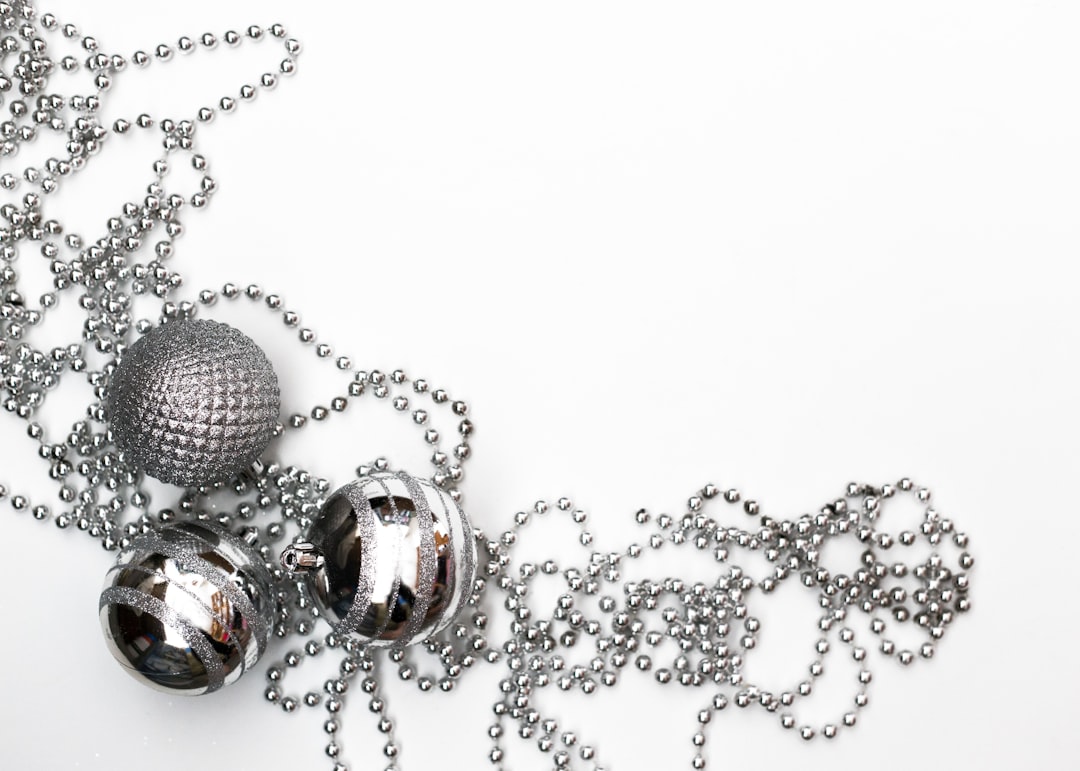 Photo by Carolyn V
Photo by Carolyn V
Originally Posted On: http://anationofmoms.com/2020/04/types-of-silver-jewelry.html
Silver jewelry is classic, timeless, valuable, and a long-lasting accessory with the right care. Did you know there are different types of silver? The kind of silver jewelry you choose has a significant impact on its value, maintenance, and quality.
The origins of silver jewelry started with ancient Greece but may go back further. Silver mining itself is more than 5,000 years old, and Greece had a major silver production hub as early as 1200 BC.
Silver jewelry was made for centuries after the invention of silver mining. However, silver jewelry didn’t truly explode until the 19th-century. Cultures across the globe were crafting stunning pieces, from indigenous Americans in the U.S to top designers in Europe.
The demand for silver skyrocketed in the late 19th-century and continued well into the 21st-century. Today, silver is still a hot commodity for jewelry designers and collectors alike.
Learn more about the different types of silver for your growing collection!
The Science Behind Silver
Silver is a natural-occurring metal found primarily in mines. The world’s largest silver mines are located in Mexico, Bolivia, Poland, Australia, Turkey, and Peru. Scientists can also make artificial silver in a lab.
Silver is a type of white metal alloy. Other familiar white metals include tin, zinc, cadmium, lead, bismuth, and antimony.
Silver is an ideal jewelry material because it doesn’t corrode or succumb to water damage. It’s also resistant to harmful acids, alkali, and other types of moisture. Under high heat, silver is extremely soft and malleable, which is perfect for intricate jewelry metalwork.
How Silver Is Made
Silver isn’t just valuable to jewelers and collectors. It’s a vital metal for heavy industry, photography, consumer products, sustainable design, and investing.
There are a few ways silver is extracted and prepared for jewelry making. The most popular silver production method is a cyanide heap leach method.
First, the silver ore is crushed into small pieces and placed into a mixture of lime, sodium cyanide, water, and cement mixing material. The mixture is formed into heaps for silver filtering.
Fine zinc dust is used to precipitate the silver from the heap. In other words, the zinc turns the liquid silver into a solid, so it can be extracted from the heap mixture. The filtered silver is melted into valuable bullion bars.
What Are the Different Types of Silver?
There are several kinds of silver available for jewelry-making, with some more valuable than others.
These are the most common forms of silver used in jewelry:
.999 Silver (99.9% Pure!)
Let’s start with the purest form of silver. Fine .999 silver jewelry is the closest you’ll get to pure silver. It’s called .999 silver because it’s technically 99.9% pure silver!
This type of silver is the highest quality silver you can buy. If you compare .999 pieces to more affordable silver, you’ll notice a stark difference in shine and luster.
The only problem with 99.9% pure silver is its softness. Since it’s the softest silver of the bunch, it’s more vulnerable to scratches and imperfections. It’s the shiniest silver, but it’s not the best choice for long-lasting jewelry.
Silver-Filled Jewelry
Silver-filled pieces are one of the newest forms of silver jewelry. This is a type of layered silver designed for low-cost consumption. It’s particularly popular during recessions when silver prices skyrocket.
Silver-filled metal features a sterling-silver plating on the outside, but the inside is made of brass. Sterling silver is fused to the brass core with pressurized heat. This type of silver is ideal for affordable silver rings, necklaces, pendants, and bracelets.
Sterling Silver Jewelry
No doubt, you’ve heard of sterling silver jewelry, but what is it exactly? How much silver is in your favorite sterling silver necklace?
Silver-filled jewelry contains anywhere from 5% to 10% sterling silver. A typical piece of sterling silver jewelry is comprised of 92.5% silver and 7.5% copper. In some instances, copper may be switched out for another metal.
Sterling silver is technically the standard silver used for all global silver markets; this includes jewelry and financial markets.
One way to know for sure if a piece of silver is sterling silver is to look for special stamps. Real sterling silver jewelry or accessories may have .925 “quality” marks on the inside surface.
Sterling silver is the choice silver of jewelry designers and customers.
Rise of the Non-Tarnish Silver
One of the newest (and most popular) types of silver is Argentium silver, which is a type of non-tarnish silver alloy. Silver is notorious for tarnishing quickly. That’s because of naturally-occurring sulfur in the air.
Argentium silver is made from 92.5% silver, and the rest is a mix of copper and germanium. Since silver is so naturally soft, germanium is added to harden the metal. This hardening helps protect against tarnishing.
As of now, this type of silver is more expensive than sterling silver jewelry. It’s also much rarer than sterling silver. If you compare both types, you’ll notice that both sterling and Argentium silver have .925 quality markings.
How to Choose Silver Jewelry
If you’re looking for a particular type of silver jewelry, research is essential. Compare different silver jewelry sources for price, quality, and style. You’ll notice that most online jewelers include the type of silver on the product page.
Since sterling silver and Argentium look so similar, you may need to talk to an expert if the silver type isn’t mentioned on the product page. Often, jewelry is just labeled as “silver,” so you may need to inquire further about the exact type.
Start Your Silver Jewelry Collection Today
All that glitters isn’t gold. Enjoy the benefits of high-quality, versatile silver! Remember these types of silver as you build your gorgeous silver jewelry collection.
Are you craving more ideas and inspiration for your next hobby or project? Check back often for the latest tips and tricks for readers like you!